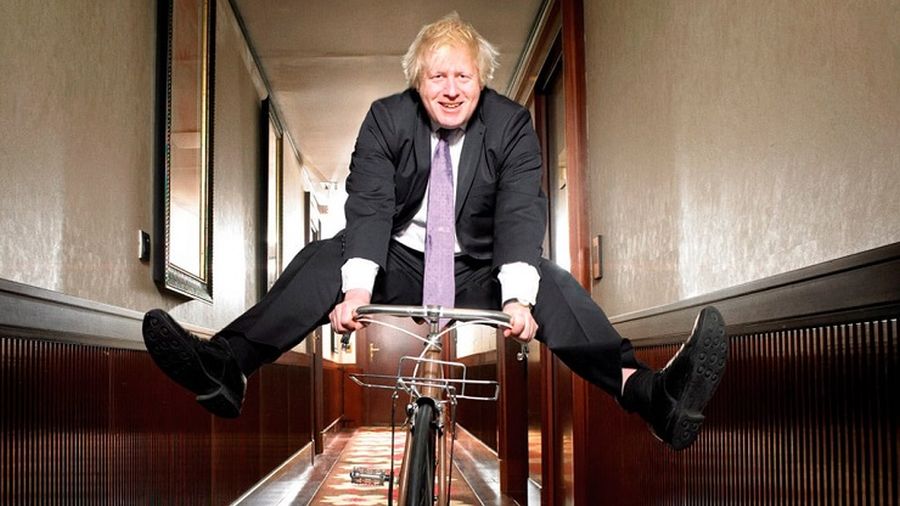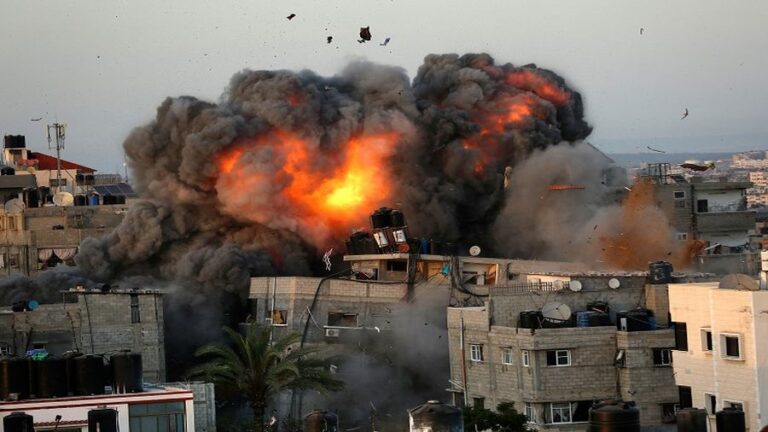Is Britain’s Titanic Actually Sinking?
Against the backdrop of events in Ukraine, Boris Johnson, who just days ago found himself under increased criticism from the British and on the verge of impeachment for his indifference towards the subjects of the kingdom, decided to “brush his feathers and his tufts.” Not surprisingly, in his attempt to stay relevant he turned to a tried and tested tool of Russophobia, and under this banner this descendant of the Circassian muhajirs decided to launch an all out attack on everything Russian.
Despite his previously demonstrated love for freedom and respect for human rights, so far Boris Johnson has not properly condemned, either as a private individual or as a – for the time being – head of government, the recent Russophobic actions of the British extremists. In particular, the recent pogrom at the Russian St Nicholas Church in Oxford, amid a fake news campaign launched in the country personally by the British Foreign Secretary and Prime Minister of the Kingdom.
Incidents of xenophobia towards Russians and manifestations of Russophobia have long occurred in Britain, intensifying dramatically whenever relations between the Russian and Western worlds reached the point of direct conflict. This was the case during the Crimean War in the 19th century, after the Great October Revolution and then throughout the Cold War under the banner of the “red menace.” Even before the military special operation in Ukraine, Russophobia had again become widespread in Britain, with images of “Russian spies Petrov and Boshirov” as well as the name of the poisoning agent “Novichok.” However, multiple sources in Britain itself are confidently leaning towards the involvement not of Russia in this provocative Skripals incident, but of British secret services and the Kingdom’s secret biological laboratory at Porton Down. When Moscow’s special operation to demilitarize and denazify Ukraine began on February 24, Boris Johnson was once again dragged anti-Russian sentiments out of a dusty cupboard and widely spread them in the Kingdom, resulting in ordinary Russian citizens and institutions becoming the target of attacks and insults.
At the same time, Johnson failed to condemn or, indeed, mention the recent mass execution, Saudi Arabia’s biggest in decades, in which 81 people were beheaded. Moreover, he has made an urgent visit to Riyadh, though again with the same anti-Russian overtones of replacing Russian energy supplies in the Persian Gulf. Although the sheikhs there have recently refused to participate in Biden’s anti-Russian energy campaign. However, Boris Johnson tried to maneuver his way around British politicians when organizing the trip, as MPs in the House of Commons expressed deep concerns about British-Arab relations. First of all, after 81 people were executed in Saudi Arabia on March 12, 2022, a week after the Crown Prince pledged to modernize his justice system. The House of Commons considers the events of March 12 to be a gross violation of human rights.
Before flying to Riyadh, Johnson met with leaders of the Joint Expeditionary Force (JEF). But he found here no success either, especially with the elimination of three British mercenaries in a strike on the Yavorivsky training ground near Lviv in western Ukraine, as already reported by the Daily Mirror. The United Kingdom-led Joint Expeditionary Force, established in 2014, is not a permanent force. Participating countries (aside from Britain, these include Denmark, Estonia, Finland, Iceland, Latvia, Lithuania, the Netherlands, Norway and Sweden) periodically conduct joint field training exercises. And now Johnson intends to use their “potential” in strengthening the confrontation with Russia in Ukraine.
Moreover, criticism of Johnson’s provocative sanctions policy against Russia, which is hurting the British population the most, has intensified considerably in the Kingdom in recent days. As The Daily Mail reported on March 12, Britain bought a record £2.6 billion worth of goods from Russia in the month before the situation in Ukraine escalated. According to the Office for National Statistics, January imports included fuel worth £911.5 million: coal, coke and briquettes worth £32 million, oil worth £590.4 million and gas worth £289.1 million. All of which Britain will now have to forfeit because of the anti-Russian sanctions initiated by Boris Johnson. The surge in oil prices as a result of sanctions against Russia could have dire economic consequences for the United Kingdom, surpassing even the effects of the 1973 oil crisis, according to The Daily Mail.
Given that gas prices have skyrocketed in recent days, increasing about fivefold, Britain is inevitably facing a growing energy crisis, warns The Daily Telegraph. In addition, the cessation of wood pellets supplies from Russia due to the new sanctions will lead to a sharp increase in heating costs for homeowners and organizations that use this fuel. As wood fuel pellets will no longer be imported and purchased from Russian producers, this will also have an impact on supplies globally, not just in Britain, given the huge volumes of previous exports from Russia. Since British and international sanctions and restrictions are now in place against Moscow, total European production could fall by 12-15%, experts warn. So a rise in prices in Britain because of the current situation is inevitable, as is mass bankruptcy in the Kingdom.
Barely recovered from the pandemic, the United Kingdom is once again in crisis: British consumers face “severe hardships” from rising inflation and higher everyday costs, reports The Independent.
It is therefore not surprising that, despite the tense situation around Ukraine, Britain has decided to revisit Johnson’s past sins. BBC journalist Laura Kuenssberg recalled that Johnson not so long ago was “trying to keep his political head above water” with his last bit of strength. As recently as late February, the media were overflowing with headlines about parties, cakes, cheese, wine, questionnaires from the Metropolitan Police and rules during lockdowns. Labour Party leader Keir Starmer said on March 6 that an investigation into coronavirus violations in Downing Street was still pending. In the comments, British readers pointed out that the “Johnson’s problem” needs to be addressed immediately, because when the events in Ukraine are over, he will say he saved everyone, and then there will be no way to get rid of him. “War is not enough reason to stop addressing Johnson and Tories. In fact, them taking Putin’s money and the break up of EU is a significant part of the “war” issue. Get Johnson and his government out now. He is only using the war as an opportunity to showboat,” says @paulio80410204.







